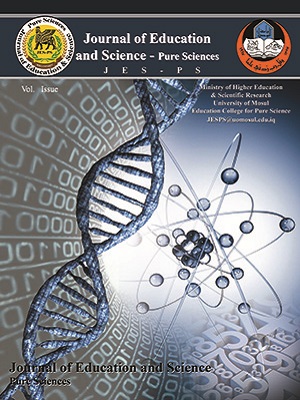Abstract
Differential equations are equations that relate a function to one or more of its derivatives. Nonlinear means that the equation is not directly proportional to the function and its derivatives. In other words, its variables cannot be separated simply. The dependent variable and its derivatives are exponential, i.e. not of first order. Fractional order indicates that the derivatives in the equation are not necessarily of integer order (such as the first derivative or the second) and can even be a fraction, meaning that the order is a fractional number. To solve nonlinear ordinary differential equations with fractional derivation, the homotopy analytical method was used because solving these equations is not easy using the usual and well-known methods. However, the results of the homotopy method were not as accurate as required, so algorithms were used to improve the results of the homotopy method. Among these algorithms is the bird flock algorithm (HAM-PSO). In this research, the Runge-Kutta algorithm (HAM-OBE) was used to improve the results of the homotopy method. Through the examples in the diagram, it is noted that the bird flock algorithm (HAM-PSO) improved the results of the homotopy method by an error of 4.17e-02 As for the Runge-Kutta algorithm (HAM-OBE), it improved the results by an error of 4.6835e-07 By comparing the amount of errors with the Runge-Kutta algorithm (HAM-OBE), the results were improved by 99.99% compared to the exact solution, where the root mean square error (RMSE) was used as a fitness function to know the amount of improvement compared to the exact solution. This improvement is useful because nonlinear differential equations with spherical debt are useful in physics, chemistry, medical industries, body motion, and artificial intelligence. It has life applications such as studying sound waves and the movement of objects through fractional derivatives.
Keywords
Keywords: Homotopy analysis method Runge-Kutta optimization algorithm nonlinear differential equations fractional calculus
